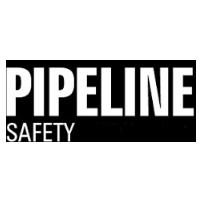U.S. Appellate Court Almost Sorry for Letting Feds Skate on San Bruno Blast

Despite “very troubling allegations” about federal regulators’ oversight of pipeline safety, or lack thereof, the U.S. Ninth Circuit Court of Appeals said San Francisco cannot blame them for the 2010 San Bruno blast that killed eight people and leveled a neighborhood.
The court upheld a decision (pdf) by a lower court to dismiss a lawsuit that alleged the Pipeline and Hazardous Materials Safety Administration (PHMSA) and the U.S. Department of Transportation (DOT) didn’t follow federal laws in assessing whether California’s Public Utilities Commission (PUC) properly enforced federal safety standards. The lawsuit wanted the court to order the feds to fix that.
The court did not. “We have no authority to compel agency action merely because the agency is not doing something we think it should do,” Chief Circuit Judge Sidney Thomas wrote for the panel, citing a previous decision that cited a previous decision that cited yet another previous decision.
They all said pretty much the same thing. Federal regulators are allowed to do their jobs badly as long as they adhere to the general guidelines given them by lawmakers.
The Natural Gas Pipeline Safety Act of 1968 (pdf) gives states a lot of regulatory authority over pipelines in their jurisdiction as long as they certify to the PHMSA that they are following federal safety standards. San Francisco alleged the PUC said it was doing that but really wasn’t. The lawsuit claimed the PHMSA should have known the PUC was falling short and withheld money from them to compel compliance.
The U.S. District Court and the appellate court both showed why it is difficult to challenge regulatory agency rulings in court when they rejected two key state claims. They said the Act does not allow what amounts to a citizen lawsuit against an agency for its regulatory actions, and the complaints made fall within the broad discretion an agency has to interpret the law.
That said, the court practically lamented it couldn’t do something to encourage regulators to do a better job of enforcing pipeline safety standards. They had good reason.
An amicus brief (pdf) submitted to the appellate court by the Pipeline Safety Trust, a nonprofit watchdog created in 2003 out of a federal judicial ruling, sought to “familiarize the Court with the frequency and consequences of failures in the pipeline regulatory system.”
“A significant pipeline incident occurs in the United States, on average, two out of every three days,” the brief says. States were in charge of all pipeline regulation until 1968, when after a series of pipeline failures Congress established minimum federal standards and set up a system of oversight of already entrenched interests.
“Yet more than 35 years later, it is still unclear whether the DOT has followed congressional direction,” the brief says. Every time there is a disaster, like the fatal 1990 explosion in Allentown, Pennsylvania, the woeful inadequacies of pipeline infrastructure are revisited and Congress adds a few new wrinkles to badly-enforced laws.
In 1994, an Edison, New Jersey, natural gas pipeline ruptured, destroying eight apartment buildings. A liquid butane pipeline leaked near Lively, Texas, in 1996, releasing a vapor cloud that exploded when a car drove through it. A gasoline pipeline burst in 1999, spilling 1 million gallons into a creek running through the middle of Bellingham, Washington, before igniting in a fireball. A high-pressure natural gas line failed in 2000 near Carlsbad, New Mexico, resulting in an explosion that killed 12 members of a family.
All of the stories involved poor maintenance and lack of oversight. The court was impressed with them, but may have been equally impressed by the trust’s warning about what was at stake in the case.
The trust explained that, despite its long record of involvement in pipeline safety issues, this was the first time it was participating in litigation. The reason?
“Because the outcome of this case may determine whether the Trust or others are able to prevent or remedy future failures by ensuring enforcement of existing pipeline safety laws.”
The court did not want to go there.
–Ken Broder
To Learn More:
SF Can't Blame Feds for San Bruno Explosion (by Nicholas Iovino, Courthouse News Service)
Court Rejects San Francisco Lawsuit Against Federal Pipeline Safety Regulators (by Lisa Pickoff-White, KQED)
Ninth Circuit Rejects San Francisco Lawsuit Against PHMSA (Hunton & Williams LLP)
Gas Pipeline Emergency Plans Not Available to Public (by Noel Brinkerhoff, AllGov)
Amicus Curiae (Pipeline Safety Trust) (pdf)
City and County of San Francisco v. U.S. Department of Transportation et al (U.S. Ninth Circuit Court of Appeals) (pdf)
- Top Stories
- Controversies
- Where is the Money Going?
- California and the Nation
- Appointments and Resignations
- Unusual News
- Latest News
- California Forbids U.S. Immigration Agents from Pretending to be Police
- California Lawmakers Urged to Strip “Self-Dealing” Tax Board of Its Duties
- Big Oil’s Grip on California
- Santa Cruz Police See Homeland Security Betrayal in Use of Gang Roundup as Cover for Immigration Raid
- Oil Companies Face Deadline to Stop Polluting California Groundwater





